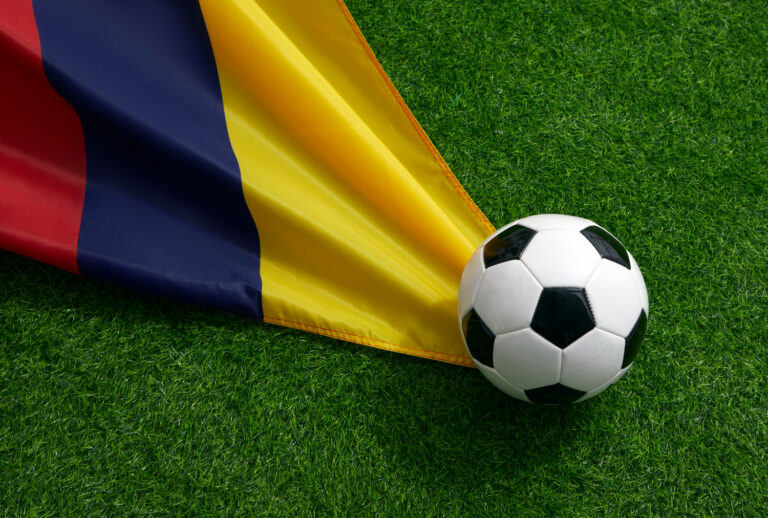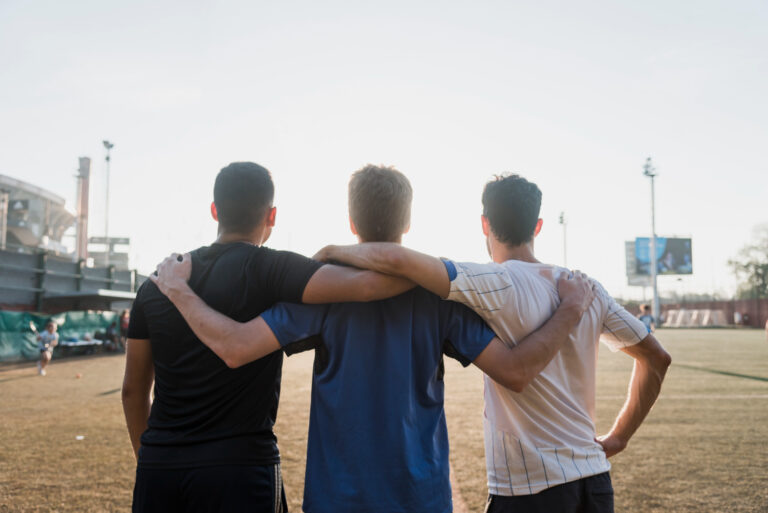Are Rivalries Killing Respect in the Game?
When two bitter rivals meet, the tension is electric. The banners are raised, the chants echo like battle cries, and the air tightens with anticipation. Derby day or grudge matches are meant to be the heartbeat of football. But lately, I’ve found myself wondering, are these rivalries going too far? Are they eroding the respect that should exist between players, managers, and fans?
You don’t have to look far for examples. Every season we see scuffles at the final whistle, managers refusing to shake hands, fans throwing objects from the stands, and players mocking opponents in ways that once would’ve drawn widespread criticism. Rivalries were always intense, but there used to be an underlying thread of honor. Something’s changed. Something’s been lost.
The Line Between Passion and Poison
Passion is what makes football beautiful. It drives players to push their limits, fans to travel thousands of miles, and clubs to build legacies. But when passion turns poisonous, it stops being love for your club and starts becoming hate for the other.
Think of the intensity between Celtic and Rangers, Boca Juniors and River Plate, Real Madrid and Barcelona, or Galatasaray and Fenerbahçe. These fixtures are often incredible spectacles. But beneath the surface, they’re also the most prone to violence, on and off the pitch. In recent years, incidents of crowd trouble, aggressive chanting, and even physical assaults have spiked in these kinds of matches. Players report fearing for their families in the stands. Fans have been hospitalized. And the conversations after these games focus more on controversy than football.
What happened to rivalry being a celebration of competition?
When Players Forget the Brotherhood
Footballers share an unspoken bond. They know what it takes to make it to the top, the sacrifice, the pressure, the loneliness. But rivalries can distort that sense of fraternity. Players who have represented both sides of a derby, think Luis Figo, Carlos Tevez, or Sol Campbell, often find themselves vilified. The backlash can be so intense, it transcends football.
Even within 90 minutes, we see moments where basic professional courtesy is missing. Cheap fouls, reckless tackles, excessive celebrations in front of rival fans. These behaviors aren’t just about hyping the moment, they set a tone that filters into youth teams, social media, and stadium crowds. The message becomes clear: disrespect is acceptable if it’s against your rival.
But respect doesn’t make you weak. In fact, it takes strength to face your fiercest rival and still acknowledge their skill. Paolo Maldini and Francesco Totti did it. Andrés Iniesta got a standing ovation at the Bernabéu. Didier Drogba and Thierry Henry shared words of admiration after brutal battles. Why is that disappearing?
The Role of the Media in Fanning Flames
Media outlets, both traditional and digital, bear some responsibility. In the quest for clicks and engagement, they thrive on narrative warfare. Every quote is twisted, every stare exaggerated, every social media post turned into fuel. When pundits casually refer to players as “traitors,” when headlines scream “hate week,” what tone are we setting?
It’s not just the tabloids. Even broadcasters play into it. Graphics, promos, and match trailers use language that feels more like promoting a UFC fight than a football match. And once you enter that mode, everything becomes about conflict, not footballing quality.
Social media intensifies it further. One viral clip of a scuffle can define a match, while moments of sportsmanship are overlooked. Players get death threats for losing derbies. Referees get doxxed for missed calls. Respect isn’t just disappearing, it’s being actively suppressed.
The Fans and the Cultural Shift
Football culture is shaped in the terraces, and unfortunately, that’s where some of the most toxic behavior starts. Fans are the soul of the game, but tribalism can become dangerous. There’s a difference between booing a rival and threatening their family. Between banter and abuse.
The problem is that the line keeps moving. What was unacceptable a decade ago is now brushed off as “part of the game.” Chants mocking tragedies, banners referencing wars, even racist or xenophobic slurs, these aren’t rare, especially in heated rivalries. Clubs issue statements, players express disappointment, but real consequences are rare.
Supporters’ groups should be a force for unity and pride. But when rivalries turn into justification for hatred, football loses its moral compass.
Managers: Peacemakers or Instigators?
Managers once played a crucial role in maintaining respect. Think of the dignified way Arsène Wenger and Sir Alex Ferguson eventually came to respect one another, even after years of fierce competition. Today, some coaches seem to relish stoking the fire.
Post-match interviews have become arenas for mind games, veiled insults, and coded provocations. “We were the only team trying to play football,” or “You know what they’re like when they lose.” These may seem like minor digs, but they set a tone that influences players and fans alike.
Of course, not all managers indulge in this. Pep Guardiola, Carlo Ancelotti, and others still carry themselves with class, even in defeat. But for every Guardiola, there’s a coach somewhere stirring conflict because it buys him loyalty, or buys him time.
The Young Generation: Learning the Wrong Lessons?
Football is generational. What we see on TV and in stadiums today shapes the attitudes of tomorrow’s players and fans. When kids watch their idols behave aggressively toward rivals, when they see respect dismissed as weakness, they internalize it.
Ask any grassroots coach and they’ll tell you the same thing: the trickle-down effect is real. Young players mimic what they see in the professional game. If all they see in derbies is chaos, that’s what they’ll bring to their Sunday leagues.
Footballers aren’t just athletes, they’re role models. And rivalries are a massive stage. If we want a game that promotes character and discipline alongside competition, the message has to change from the top down.
When Rivalry Elevates the Game
All this isn’t to say that rivalries are inherently bad. In fact, when handled with respect, they can produce the most beautiful football. The intensity sharpens focus. The atmosphere elevates performances. The stakes give meaning to every pass and tackle.
Think of the Milan Derby in the early 2000s, where Kaka and Pirlo danced through midfield while Javier Zanetti and Esteban Cambiasso gave everything for Inter. Or El Clásico during the Guardiola-Mourinho era, not the fights, but the football. Xavi, Messi, Cristiano Ronaldo, Benzema, Iniesta, all peaking under pressure.
What made those matches unforgettable wasn’t just the rivalry. It was the respect buried beneath it, the recognition of talent, the acknowledgement of the occasion, the shared commitment to excellence.
Moving Forward: Can We Save the Spirit of the Game?
It’s not too late. Rivalries can still be fierce and respectful. Clubs can take stronger action against abusive fan behavior. Media can be more responsible in shaping narratives. Players and managers can lead by example. And fans, above all, can remember that passion doesn’t have to mean hatred.
Supporters should be proud of their colors, sing louder than the rest, and want their team to win at all costs, but not at the cost of decency. Not at the cost of safety. Not at the cost of respect for the very game we love.
Final Whistle
Football needs rivalries. They’re the spark in the calendar, the stories we pass on, the games we never forget. But when rivalries stop being about the football and become a vehicle for animosity, something’s wrong.
Respect and rivalry don’t have to be opposites. They can exist side by side, have done for decades. It’s time we return to that balance. Because if we lose respect, we lose something much bigger than a match, we lose the soul of the sport.







